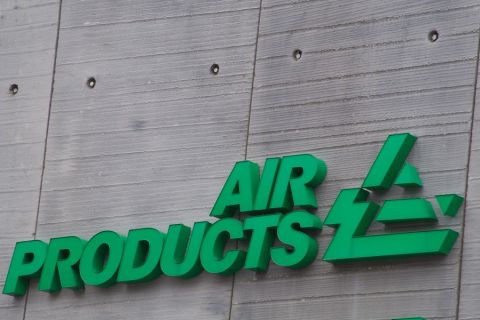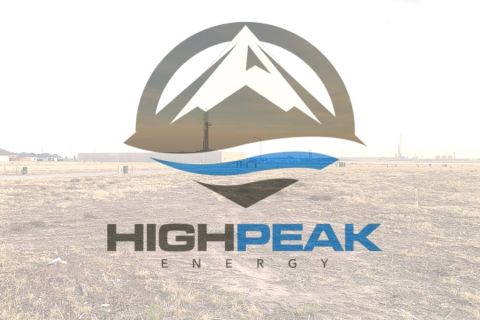
Range Resources Corp. CEO Jeff Ventura speaks during Hart Energy's DUG East conference and exhibition in 2014. (Source: Hart Energy)
The head of one of the biggest gas-producing companies in the U.S. is optimistic about the future of natural gas, particularly in Appalachia, despite low prices, moves by some companies to slow activity and a surge in gas production from the Permian Basin.
“Looking at where the natural gas market sits today we’re currently seeing record power demand, record LNG exports, record Mexican exports and industrial projects along the Gulf Coast and even in Pennsylvania,” Range Resources CEO Jeff Ventura said July 26. “This is happening at a time when natural gas producers are slowing activity and storage is at similar levels to last year when looked at on a days-of-supply basis. We think this sets up a very constructive story that’s not being reflected in the forward curve.”
His words were spoken during the company’s second-quarter 2019 earnings call with analysts. Dry gas basin economics remain pressured at current strip prices, challenging growth needed in the basin to help meet future global demand growth. The price of the 12-month strip averaging August 2019 through July 2020 futures contracts declined 7 cents/MMBtu to $2.394/MMBtu for the week ending July 24, according to the U.S. Energy Information Administration.
To survive the storm, gas-weighted producers like Range Resources are becoming more efficient in fields, working to keep costs down and striving to move products across the U.S. and abroad.
RELATED: Range Narrows Appalachia Footprint With $634 Million Asset Sales
“I believe Range is in good shape to not only weather the current commodity headwinds but to generate sustainable free cash flow through the cycles,” Ventura said. “We’ve captured a highly contiguous position in the core of the Marcellus. We have filled our infrastructure. We have the ability to reach multiple markets to sell our products and our cost structure, shallow base decline and pure-leading maintenance capital requirements provide a solid foundation from which we can make capital decisions.”
He later added the company sees many reasons to be optimistic for the future of NGL and natural gas, pointing to demand growing faster than oil, and LNG projects underway.
Range is in talks involving a “second wave of LNG projects that are looking to secure long term supplies,” he said. “Several of these projects made FID in the second quarter or secured key long-term sales agreements supporting our expectation that LNG demand reaches 18 Bcf per day in the next five years.”
Further elevating confidence is the presence of several in-basin power projects and petrochemical facilities being considered near Range’s core operating area in Appalachia.
“We’re well-positioned to meet that demand when commodity prices warrant that investment,” he said.
Range Resources, which also has assets in Louisiana, produced 2.287 Bcfe/d during the second quarter, slightly above guidance for the quarter. Revenues totaled $851 million, up 30% compared to a year ago.
Net cash provided from operating activities increased by about $10 million to $185 million, while earnings—which included a $195 million derivative gain due to decreases in commodity prices—were $115.2 million versus a loss of $79.8 million during second-quarter 2018.
Analysts with CapitalOne Securities called the results positive.
“Range beat the Street’s quarterly expectations for EPS, CFPS, and EBITDA while managing to post a capex total that was 2% below the Street,” analysts said. “Production for the quarter beat the high end of company guidance and the Street’s lofty expectations, which also exceeded the guided range. This was despite downtime at a MarkWest facility that caused an electrical outage during the quarter, which has since been resolved.”
Production in Appalachia, where most of the company’s assets are located, increased 10% to average about 2.062 Bcfe/d.
In all, the company turned in line 18 wells during the second quarter, including 16 in Appalachia—eight each in super-rich and wet gas southwestern Pennsylvania. By year-end, Range plans to have turned in line 52 wells, including 49 in Appalachia.
Operational highlights for the quarter included a dry gas pad that produced more than 100 MMcf/d for more than four months from seven wells. The average lateral length was 13,800 ft, Range COO Dennis Degner said on the call.
“We often talk about the strong gas rates in this area and this pad is no different, having produced over 15 Bcf of gross gas to date under a constrained environment keeping a portion of our dry gas gathering fully utilized,” Degner said.
The team also drilled four of the top 20 longest Marcellus wells in the company’s history, he added.
“The average lateral length of these four wells averaged over 16,500 feet per well while the drilling cost per lateral foot is 22% lower than the year-to-date average cost per lateral foot,” Degner said. “We continue to see the operational and capital efficiency of drilling long laterals by increasing the average lateral length by 7% over the first quarter, while reducing the average number of drilling days per lateral to eight days.”
Range intends to produce between 2.25 and 2.26 Bcfe/d in the third quarter.
The future could also bring more asset sales. Earlier this month, Range said it sold 2% overriding royalty in southwest Pennsylvania leases for about $600 million in gross proceeds, a move that company executives said de-risks capital plans.
Range is currently marketing additional opportunities, according to CFO Mark Scucchi.
“These processes are in various stages and as we have consistently done in the past we will announce results but we will not negotiate against ourselves by establishing a public dollar threshold or timeline,” Scucchi said. “Suffice it to say, we have a deep inventory of projects that we believe we can divest at reasonable values, particularly in comparison to the value of our common equity.”
When asked by an analyst whether this includes other potential overriding royalty interest packages, he said the value of previous transactions show there is interest for that type of asset. “So, we would keep that in mind.”
Velda Addison can be reached at vaddison@hartenergy.com.
Recommended Reading
BP’s Kate Thomson Promoted to CFO, Joins Board
2024-02-05 - Before becoming BP’s interim CFO in September 2023, Kate Thomson served as senior vice president of finance for production and operations.
Magnolia Oil & Gas Hikes Quarterly Cash Dividend by 13%
2024-02-05 - Magnolia’s dividend will rise 13% to $0.13 per share, the company said.
TPG Adds Lebovitz as Head of Infrastructure for Climate Investing Platform
2024-02-07 - TPG Rise Climate was launched in 2021 to make investments across asset classes in climate solutions globally.
Air Products Sees $15B Hydrogen, Energy Transition Project Backlog
2024-02-07 - Pennsylvania-headquartered Air Products has eight hydrogen projects underway and is targeting an IRR of more than 10%.
HighPeak Energy Authorizes First Share Buyback Since Founding
2024-02-06 - Along with a $75 million share repurchase program, Midland Basin operator HighPeak Energy’s board also increased its quarterly dividend.






